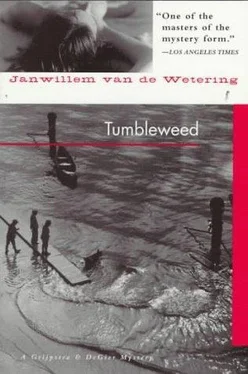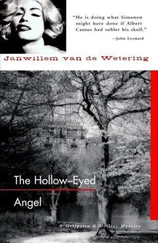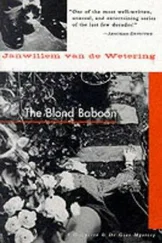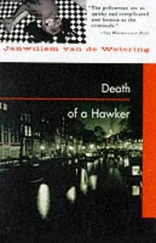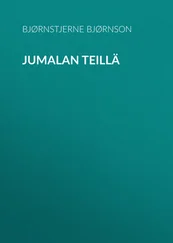Janwillem De Wetering - Tumbleweed
Здесь есть возможность читать онлайн «Janwillem De Wetering - Tumbleweed» весь текст электронной книги совершенно бесплатно (целиком полную версию без сокращений). В некоторых случаях можно слушать аудио, скачать через торрент в формате fb2 и присутствует краткое содержание. Жанр: Полицейский детектив, на английском языке. Описание произведения, (предисловие) а так же отзывы посетителей доступны на портале библиотеки ЛибКат.
- Название:Tumbleweed
- Автор:
- Жанр:
- Год:неизвестен
- ISBN:нет данных
- Рейтинг книги:4 / 5. Голосов: 1
-
Избранное:Добавить в избранное
- Отзывы:
-
Ваша оценка:
- 80
- 1
- 2
- 3
- 4
- 5
Tumbleweed: краткое содержание, описание и аннотация
Предлагаем к чтению аннотацию, описание, краткое содержание или предисловие (зависит от того, что написал сам автор книги «Tumbleweed»). Если вы не нашли необходимую информацию о книге — напишите в комментариях, мы постараемся отыскать её.
Tumbleweed — читать онлайн бесплатно полную книгу (весь текст) целиком
Ниже представлен текст книги, разбитый по страницам. Система сохранения места последней прочитанной страницы, позволяет с удобством читать онлайн бесплатно книгу «Tumbleweed», без необходимости каждый раз заново искать на чём Вы остановились. Поставьте закладку, и сможете в любой момент перейти на страницу, на которой закончили чтение.
Интервал:
Закладка:
"It's cold," Grijpstra said. "Spring is warmer in the city."
"But we are not in the city, we are here. Look at the birds. We'll see a lot of birds on the island, it's a bird's paradise."
"I know," Grijpstra said. "I have been here before. But it was warmer then, toward the end of July. I camped with the kids."
His voice sounded gruff. De Gier stopped looking at the sea. "You didn't like it?"
"The kids enjoyed it."
"Did you like it?"
"No."
"Why not?"
"Too full. There were so many tents and beach cabins and people pulling carts and pushing bicycles that I thought die damn island would sink. Everything was full, you had to wait half an hour before they would serve you in the restaurants. And sand, sand everywhere. There was a gale blowing most of the time and we nearly lost the tent. The lines broke and it tried to fly into the sea. The sand got into my nose, I had to pick it all the time."
"It'll be all right now, the holidays haven't started yet."
Grijpstra eyed the approaching strip of land suspiciously. It had begun to rain.
"You don't look like a birdwatcher," de Gier said. "You look like a policeman. Don't you have a cap in your suitcase? Nobody wears a hat here."
"No," Grijpstra said guiltily, "but I'll put my hat in my bag, it keeps blowing away anyway. And maybe they'll have a coat like yours in the shops."
"I thought my duffelcoat was silly, you made a lot of funny remarks about it on the train."
"It looks silly, but I had forgotten we were going to be birdwatchers."
"Never mind," de Gier said pleasantly. "Do you know anything about birds?"
"Seagulls."
"That's something. Any other birds?"
"Swans."
"There won't be any here."
"Sparrows," Grijpstra said impatiently. "What does it matter? If there are any experts out there they'll be airing their knowledge and all I have to do is say they are right. Do you know anything about birds?"
"Sure," de Gier said. "I even have a book on birds. I studied it last night. Oystercatchers with red beaks, and coot, two types of coot, with a white spot on the head and with a red spot on the head, and mallards and…"
"Yes," Grijpstra said in a loud voice.
"What yes?"
"I know. Don't try to impress me. I know what a mallard is. A mallard is a plain silly fat Amsterdam duck sitting on the canal. Every day I see a hundred mallard, two hundred mallard, three hundred…"
His voice was rising.
"All right," de Gier said. "You know what a mallard is. But do you know what a cormorant is?"
"I don't care," Grijpstra said, and sneezed.
"You still have your cold."
"The cold is O.K."
De Gier studied his friend's face. Grijpstra didn't look well. The skin of his face seemed to have lost its elasticity and his eyes had sunk a little into their sockets.
"Wait," de Gier said, and went into the passengers' cabin. He bought two paper cups filled with hot creamy coffee and four fat sausages, packed in thick plastic skins.
"Have some coffee," he said, and passed the cup carefully to Grijpstra. "Mind, it's hot. You haven't had breakfast, we should have eaten something on the train."
Grijpstra stared at the coffee swirling in the paper cup. Little bubbles had formed on the surface and the bubbles turned in irregular circles.
De Gier gulped his coffee, and took a sausage out of his pocket. "Good sausages," he said. "I have two for you as well, but finish your coffee first."
He began to peel the plastic skin off the little roll of solid fat meat.
Grijpstra looked at the sausage, threw his cup overboard, and bent down over the railing. His hat was caught by the wind again but this time he didn't try to grab it.
De Gier looked sadly at his sausage. He opened his hand and it fell into the sea. It sank. He saw Grijpstra's hat, rapidly being tossed about by strong white-headed waves.
"There's your hat," de Gier said, "and you have vomited on my sausage."
Grijpstra vomited again and de Gier walked over to the other side of the ship, where he ate the other three sausages. The ship was now approaching the small harbor of Schiermonnikoog and he collected Grijpstra's and his own suitcase. They met again on the gangway.
"You're all right now?"
Grijpstra nodded, and put his right foot on the island's solid ground.
"You've made it," de Gier said.
Grijpstra turned around, slowly pulling back his heavy right arm. His large hand had become a fist and he was staring at de Gier's chin.
"I am sorry," de Gier said. "I didn't buy those sausages to make you sick. I really thought you might be hungry."
"I wasn't sick. I just felt a little off."
"He wasn't sick," de Gier said to a man walking next to him. "He only vomited a little."
"Happens to the best of us," the man said, "but there will always be people who make fun of others. The minute they see that somebody is in trouble they laugh. There are some pretty nasty people about nowadays."
"You've got a friend," de Gier said to Grijpstra.
They didn't speak to each other again until the bus which had picked them up dropped them in the center of the little town and the driver had directed them to a hotel.
They took a double room and Grijpstra immediately opened his suitcase and began to rummage about in it. He put on a pair of thick corduroy trousers and a heavy workman's jersey. His feet went into a pair of old boots, and a muffler appeared which he wound around his neck.
"Now," he said.
"That's better. But you need a coat."
"You go out and buy me something."
"I may buy the wrong thing."
"No," Grijpstra said. "You are supposed to be a man of taste. You know my size. I'll go down and play billiards and phone the adjutant of the state police. He'll come and join me and we can have a talk and make some plans. This afternoon we can begin to sniff about the island. I want to see IJsbrand Drachtsma's house and speak to some people who know him. Later we can come out in the open. Perhaps it'll shake him when he knows that we are making investigations."
"Right," de Gier said, and went out. He found three shops where clothes were sold but there weren't any duffelcoats. Finally he bought a yellow oilcloth jacket and a pair of huge trousers to go with it and a souwester, all of the same material. The shopkeeper promised that he would swap them for something else if the client wasn't satisfied. He found Grijpstra in the barroom of the hotel, a low-ceilinged smoky place where he was playing billiards with a square-looking small man in a blue suit with shiny elbows and a white shirt and a tie.
"Adjutant Buisman," the square-looking man said. "Pleased to meet you, sergeant. I heard some stories about you when Grijpstra spent his holiday here."
"What sort of stories?"
"Good stories," Grijpstra said. "You can join us if you promise not to tear the felt, and you have to chalk the cue before you play."
"All right," de Gier said, "is it my turn now?"
"Go ahead."
De Gier studied the position of the two white balls and the single red one.
"Which ball?"
"The one closest to you."
It was an easy shot and the two adjutants waited for de Gier to spoil it. De Gier chalked the cue and studied the balls again.
"Go on," Buisman said.
De Gier flicked the cue and his ball shot away, hitting the red ball on the side and the white ball full on. It was a rude shot but he had made a point.
Buisman looked at Grijpstra.
"Good," Grijpstra said, "but you won't make the next one."
The balls were well apart now and de Gier began to chalk his cue again. He would have to work out the right angle and use the table's elastic sides. He tried to remember what he had learned at the police school where one of his friends had always insisted that he should play, refusing to buy him a beer if he didn't, and de Gier had been forced to play more often than he wanted to, for his friend had a good allowance from home.
Читать дальшеИнтервал:
Закладка:
Похожие книги на «Tumbleweed»
Представляем Вашему вниманию похожие книги на «Tumbleweed» списком для выбора. Мы отобрали схожую по названию и смыслу литературу в надежде предоставить читателям больше вариантов отыскать новые, интересные, ещё непрочитанные произведения.
Обсуждение, отзывы о книге «Tumbleweed» и просто собственные мнения читателей. Оставьте ваши комментарии, напишите, что Вы думаете о произведении, его смысле или главных героях. Укажите что конкретно понравилось, а что нет, и почему Вы так считаете.
